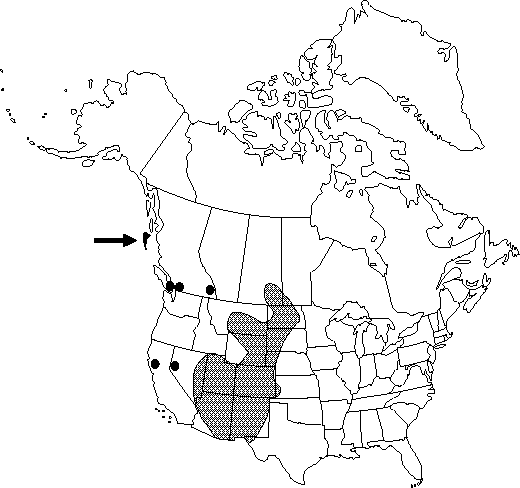Difference between revisions of "Humulus lupulus var. neomexicanus"
Proc. Biol. Soc. Wash. 16: 45. 1903.
FNA>Volume Importer |
FNA>Volume Importer |
Revision as of 19:55, 24 September 2019
Stems relatively pubescent at nodes, usually more than 15 hairs per 0.1 sq. mm at most pubescent portion (excluding angle of petiole with stem). Leaf blades 10 cm or more usually having at least 5 lobes; smaller blades (ca. 5 cm) usually with more than 3 easily visible veins branching off midrib (excluding proximal branches); surfaces usually more than 20 hairs per cm on length of midrib, more than 25 glands per 10 sq. mm between veins, abaxial glands in exceptionally dense concentration.
Habitat: On shrubs and trees on slopes, riverbanks, alluvial woods
Elevation: 300-3000 m
Distribution

B.C., Man., Sask., Ariz., Calif., Colo., Kans., Mont., Nebr., Nev., N.Mex., N.Dak., S.Dak., Tex., Utah, Wyo., Mexico.
Discussion
This taxon includes almost all specimens ofHumulusoriginating from south of the Canadian border and west of the 100th meridian. It intergrades with H. lupulus var. lupuloides in the Prairie Provinces of Canada.
Selected References
None.